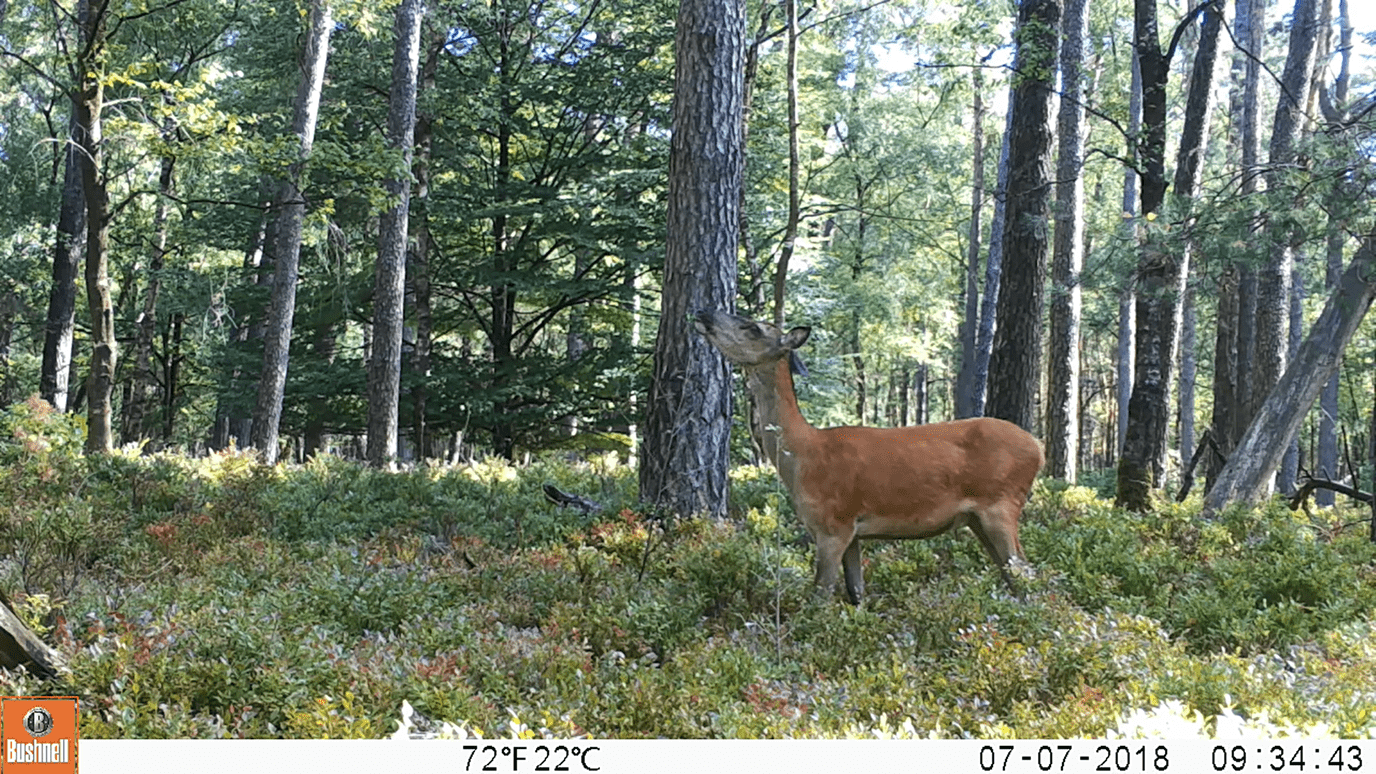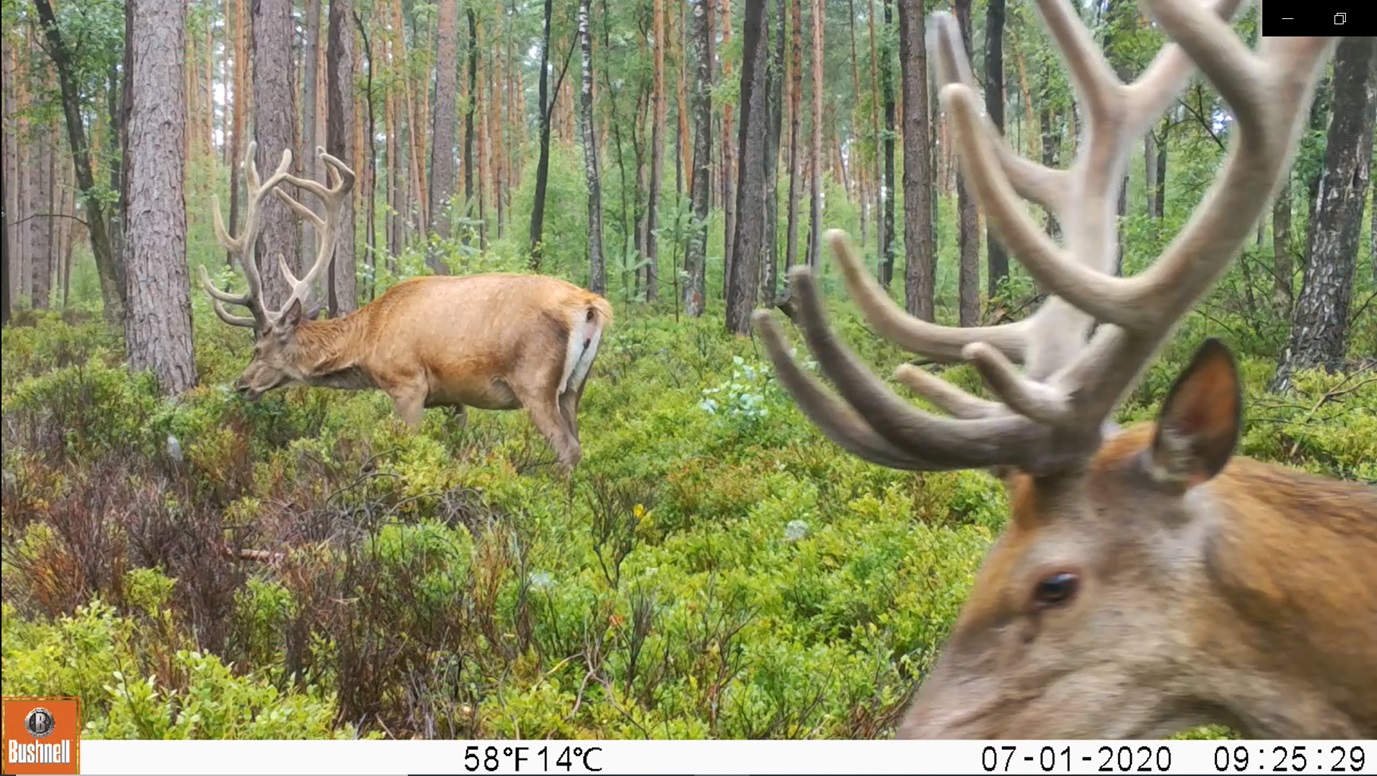Recreation stimulates forest regeneration in nature reserves
The wolf has returned, but humans are also responsible for a ‘landscape of fear’ in nature reserves. Deer are avoiding recreational areas during the day, both at the landscape scale and in the proximity of recreational trails. At the landscape scale in particular, this results in the decreased consumption of saplings, which is beneficial for forest regeneration. The effects are strongest in open landscapes such as heathland, where visibility is greatest. This is the conclusion of a recently published study carried out by Bjorn Mols, who conducted his research shortly before wolves appeared in the Veluwe.
‘Our study indicates that we, as humans, unknowingly influence the behaviour of deer, which in turn has a major impact on important landscape-forming processes such as forest regeneration. We had already suspected this effect; however, this is the first time that we have been able to experimentally demonstrate the evidence for such human-induced “trophic cascades”. This is highly relevant for wildlife management in our nature reserves,’ says Bjorn Mols, the PhD student who conducted the study.

Modern nature management
The effects were no more pronounced when hunting took place in addition to recreation, which indicates that the presence of humans serves as the main driving factor, according to the researchers. ‘It is now interesting to explore how our results can be applied in modern nature management. It hence seems possible to control forest regeneration in natural reserves more actively by means of recreational zonation, for example by temporarily permitting more or fewer visitors in certain areas, or by closing them off,’ explains Prof. Chris Smit, associate professor at the Groningen Institute for Evolutionary Life Sciences (GELIFES) at the UG.

High pressure on recreational areas due to COVID-19
The researchers emphasize that the findings are particularly relevant in light of the very high pressure put on recreational areas over the past two years of the pandemic. The major question now is how the re-emergence of wolves is influencing the effects on deer behaviour and forest regeneration. Meanwhile, this study is in progress, and the results are expected this spring.
More information
-
Academic article reference: Bjorn Mols, Evert Lambers, Joris P. G. M. Cromsigt, Dries P. J. Kuijper and Christian Smit (2022). ‘Recreation and hunting differentially affect deer behaviour and sapling performance’. Oikos, 2022, Volume 1; https://doi.org/10.1111/oik.08448
-
Photos: alert (a) and grazing (b) red deer in the Veluwe, taken at our wildlife camera locations
More news
-
10 February 2026
Why only a small number of planets are suitable for life
-
09 February 2026
Can we make the earth spin in the opposite direction?
